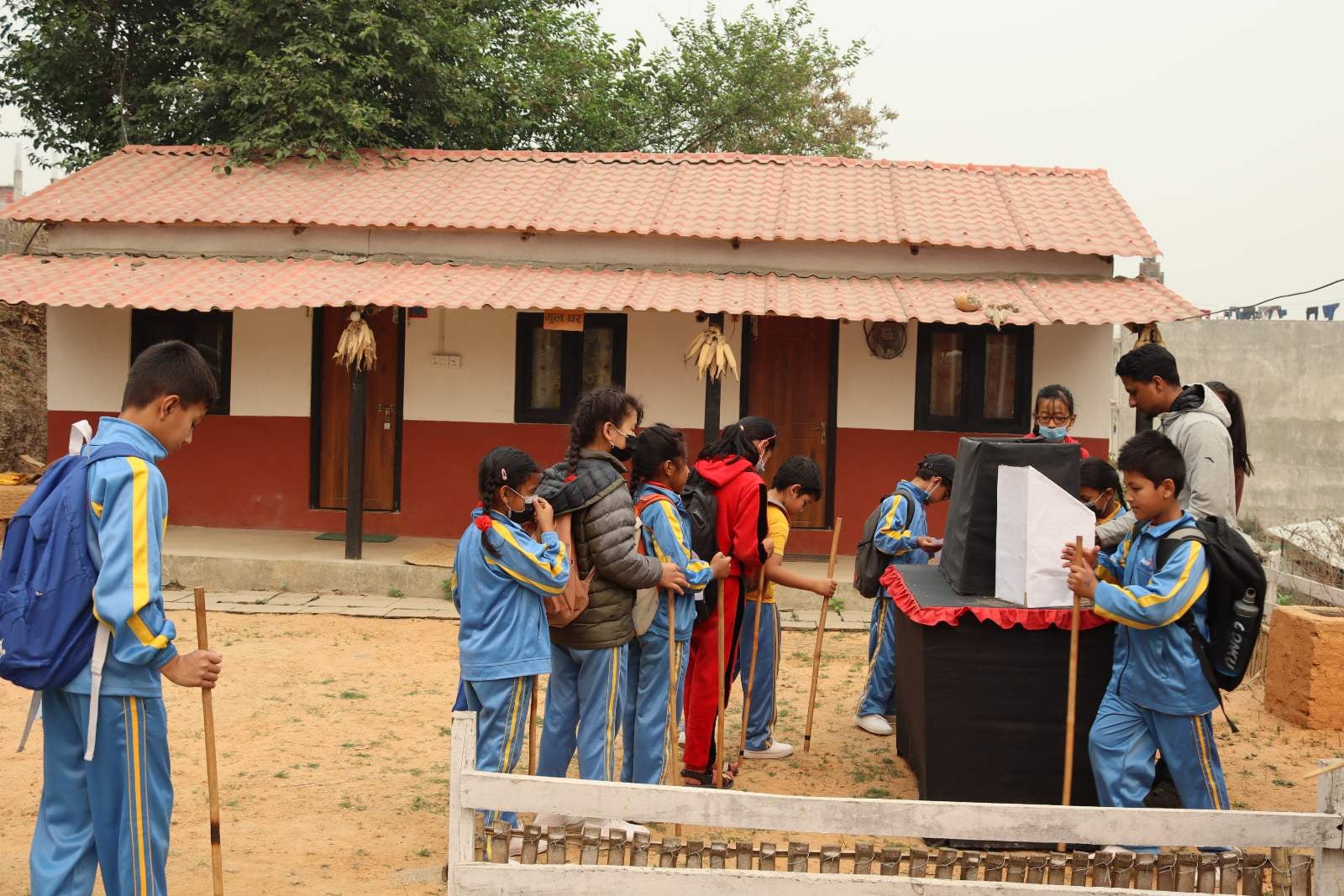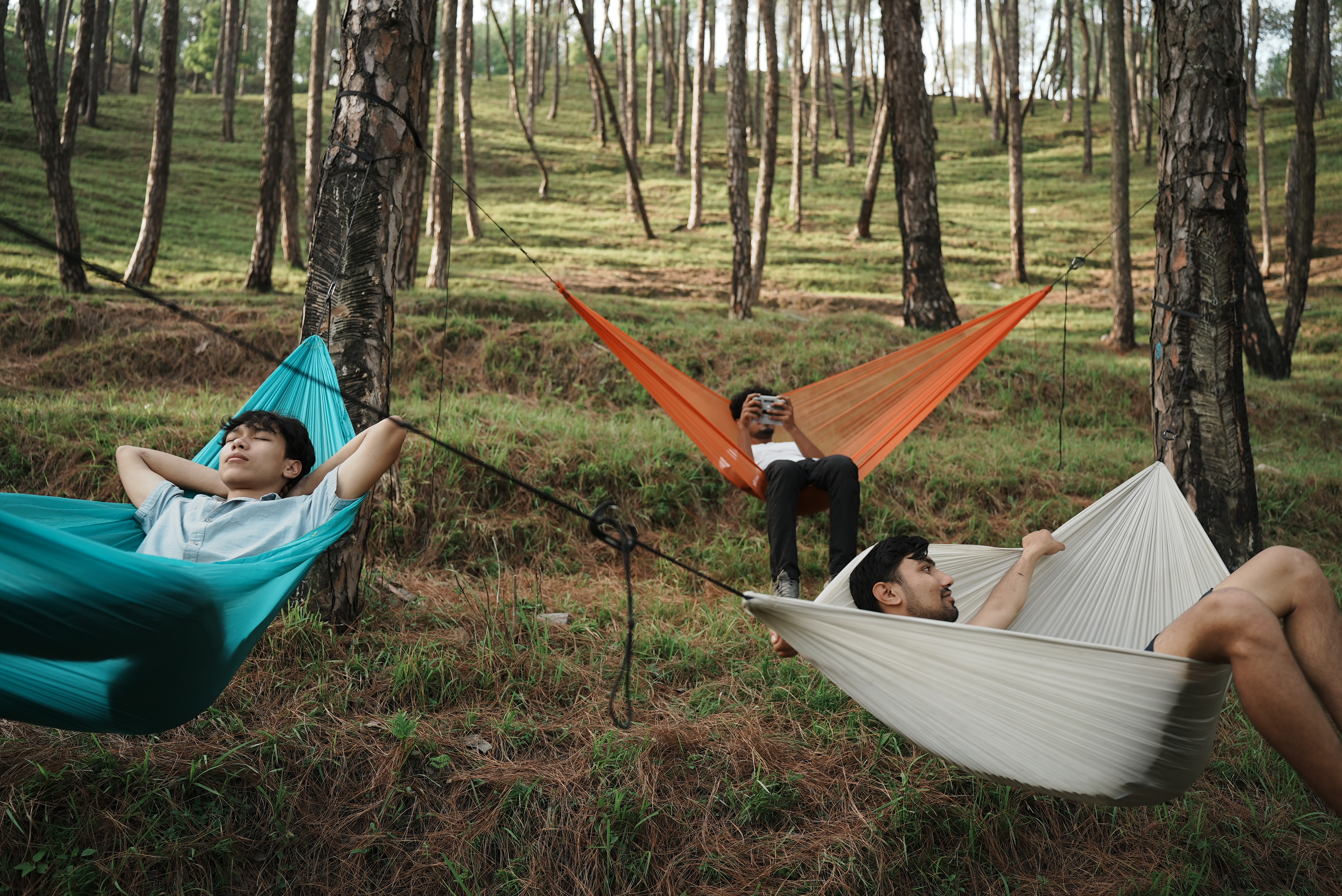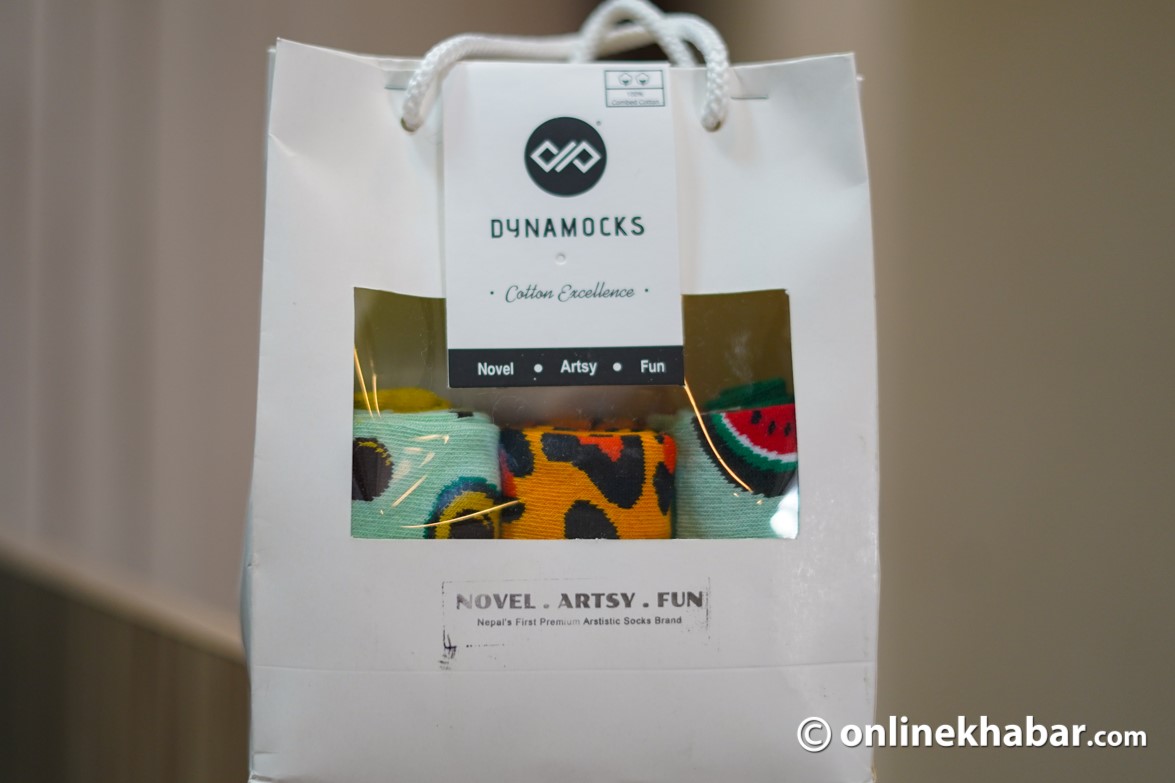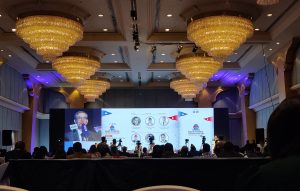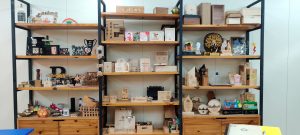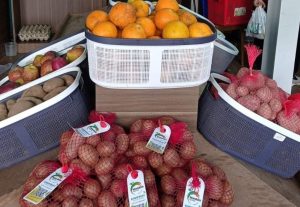On an ordinary afternoon recently, Suraj Ghimire stood at the entrance and handed each of the visitors a stick to hold while walking along an unpaved path. Also holding a stick in his hand, he told them a story and then showed a mud house there. He asked the visitors, who were schoolchildren, to sit on the floor in the courtyard smeared with red mud, where also lied a tulasi math, a loom, a heap of hay, a kitchen garden and a lot more.
Listening to the village story, the visitors walked uphill along a narrow path to rest on a chautara (a platform made by piling stones around a tree). Then, they went to a lush ground to use a handi to make popcorns and a madani to churn curd.

A student churning curd with madani. 
A student making popcorns in a handi. 
A student grinding grains with a jaanto.
Along with the expansion of technology, many have even forgotten the roots of their lifestyle, skills, art, culture, values, and wisdom. But, at Ekadeshma Agrocultural Centre, everything is intact.
Considering the need to relive the traditional Nepali rural lifestyle, a team of five youth has started an excursion centre with the theme of a traditional village at the core, in the eastern suburb of Kathmandu, Gothatar. It aims at making school students familiar with the natural, technology-free lifestyle.
Three years of making
Basanta Sapkota, Suraj Ghimire, Saroj Khanal, Sabin Dhakal, and Sweekar Khanal are the people behind this idea.
“This was proposed by Basanta, who is currently the chairperson of this institution, in 2017. He was a senior at Apex College, where I studied for an MBA degree,” Suraj Ghimire, says.
Saroj Khanal and Sabin Dhakal were also students of the same college. “We all bonded well as we shared similar aspirations and values,” shares Ghimire, one of the directors of the centre.
“We invested three years to establish this centre. It took one whole year to refine the concept,” adds Ghimire. That means the institution came into functioning in January 2020 only.
Before the launch, Ghimire says the group struggled a lot to find the appropriate land for the centre because it required a place much similar to the landscape of a village. But, it also had a contradictory requirement: that place should be within the valley.”

“We roamed around many places outside the core Kathmandu such as Kritipur and Budhanilakantha. Finally, we found this place,” Ghimire says, “It was a maize field then. We chose this because it gave us the views of Changunarayan temple, Nagarkot, Pilot Baba Ashram, Phulchoki tower, and Lele village.”
After renting the land for seven years, all five of them worked on constructing physical infrastructures along with two masons. Then, the team members went to different parts of the country, including their own villages, to collect traditional tools, utensils, folk musical instruments, and a lot more that would give a glimpse of the traditional lifestyle of Nepalis.
Then, to attract the students there, the co-founders developed a presentation and visited about 500 schools of the Kathmandu valley for marketing.
The team shares that the responses from the schools were very welcoming and encouraging. They got further motivated and launched the institution’s operation on January 6, 2020.
Operational model
The motivation was great, but the group was not aware of imminent challenges.
“Our families wanted all of us to join jobs for financial security instead of investing here,” says Ghimire, “This was the biggest challegne.”

However, they managed to invest Rs 4.5 million in the initial phase and then about Rs 2.5 million in the second phase collectively.
Their team has started this hub with an aim to practically enable students to learn a lot about traditional Nepali lifestyle, technologies, tools, culture including folk musical instruments and dresses, and geography in a short period. Here, the students, as well as other visitors, can observe, touch, play as well as use the old objects and experience the life their parents and grandparents have lived.
“We try to connect the students to the traditional village life and every element of this centre by telling them past stories,” Ghimire says, “That’s why we named this ‘Ekadeshma’ (translating to once upon a time).”
“Though we have mainly targeted this centre for the students of grade three to eight, people of every generation are equally fit to visit this place for the experience. We serve school students during the daytime and other visitors during the evenings.”
This centre has the capacity to host about 100 students a day, according to Ghimire. Before the lockdown, the centre had served eight schools within the first three months of operation. The centre charges Rs 350 per student to provide them with excursion including food, and the charge for visit excluding food is Rs 250 per student.

“Then came the biggest challenge, the pandemic. We were doing good, but we had to halt our operation for almost a year like many other businesses due to the pandemic,” Ghimire says, “It has only been one and a half months since we reoperated the centre.”
Challenges of sustainability and visibility
Presently, the centre is emphasising its sustainability as the startup was shaken by the lockdown. Therefore, the team is working to increase the visibility or awareness of the existence of this centre among many schools of the Kathmandu valley and attracting more schools towards the centre, according to Ghimire.
Likewise, Ghimire adds, “In the future, we also aim to contribute to the curriculum of the students, also incorporating prototypes of different renewable or alternative energy sources and look forward to making this centre more environment-friendly.”



